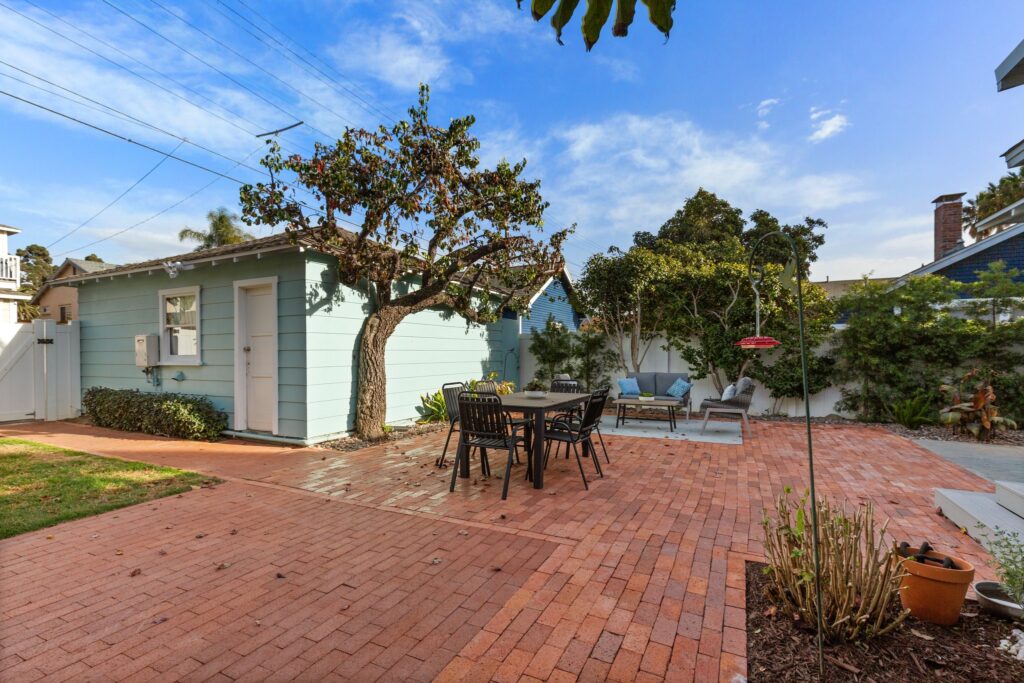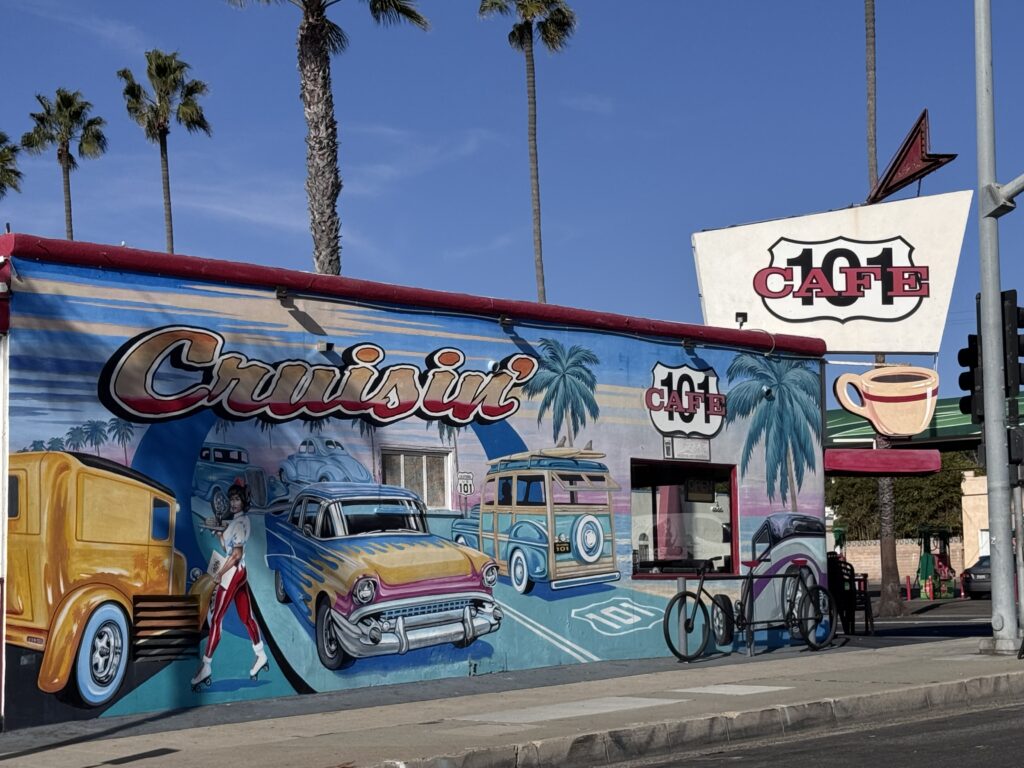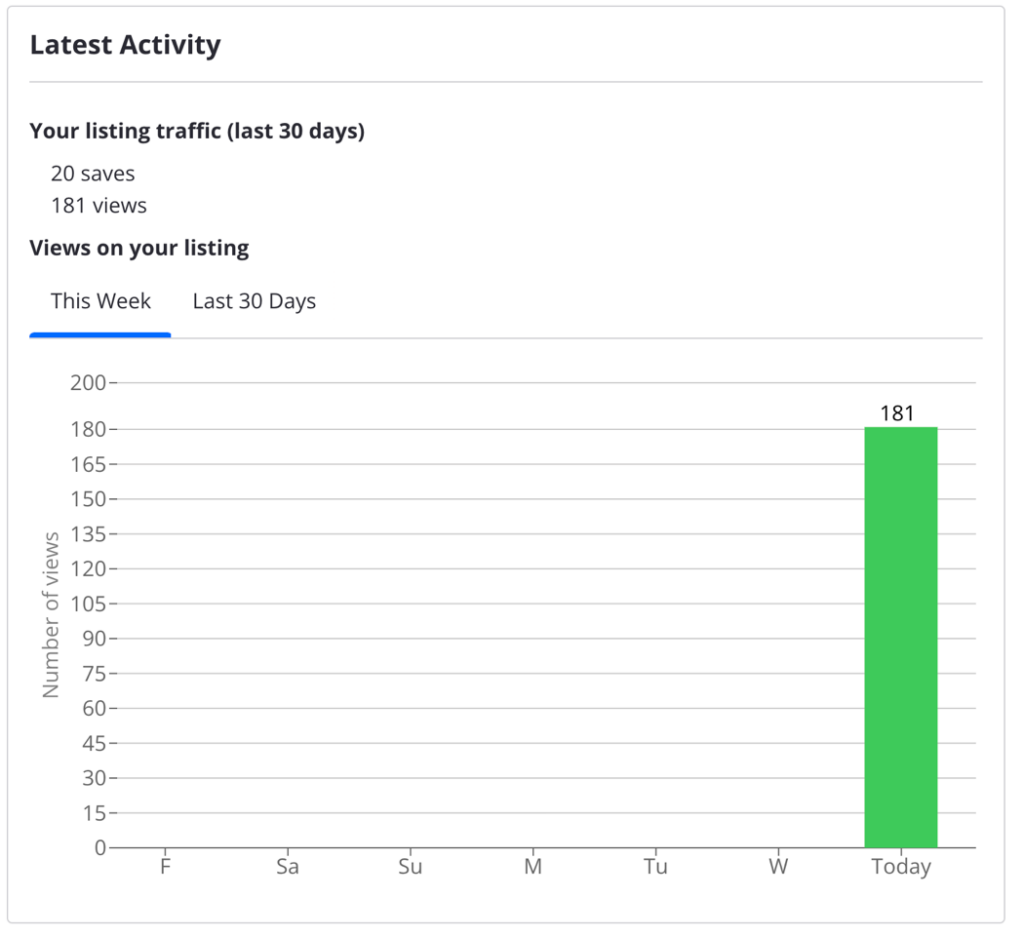
Check out our new listing!
506 S. Freeman St.
3 br/2 ba, 992sf
YB:1944
LP = $1,399,000
Are you looking for an updated beach bungalow that is walking distance to everything downtown Oceanside has to offer? This is it! Hardwood floors, like-new kitchen and baths, new paint, 2-car garage, big backyard with detached office plus lemon, fig and avocado trees – wow! Great candidate for adding an ADU.
Recent comps include 208 S. Ditmar 2br/2ba 1,106sf closed for $1,385,000 on 12/16/24; 310 S. Tremont 3br/2ba 940sf closed for $1,375,000 on 10/24/24; 713 Stanley 3br/1ba, 996sf closed for $1,300,000 on 9/19/24.
https://www.compass.com/listing/506-south-freeman-street-oceanside-ca-92054/1750199079927778353/?origin=listing_page&origin_type=copy_url&agent_id=5b51d51d9474a8364b9a8353






Two hours after listing input:






How are the fires in Los Angeles going to affect the prices of rentals and availability for houses to rent
in the area? Are rental price going to skyrocket just like they did in Hawaii? You should do a story on the fires. It’s the biggest issue right now.
It’s the biggest issue right now.
It’s a sensational story and might be the biggest of all-time in Los Angeles.
You can bet that the hustlers around the world are all packing their bags right now. The re-building will be outrageous and probably start at $1,000/sf!
But the rest of us outside of LA need to carry on. Life is short.
If 3,000 homes get destroyed, I’d guess that 2,000 get rebuilt and occupied by the current owners. At most, maybe 100-200 give up and sell their lot and move here so not much impact on our market.
We had the big Harmony Grove Fire in 1997, when around 30 homes were destroyed in La Costa. I looked it up and only three resold as vacant lots.
I was in on one of them. My clients bought the lot for $175,000, built a new spec house, and we sold it for $575,000. Those were the days!
What about sales of high end homes in safer areas like studio city? You think a 10%+ premium now in effect?
Yes, taking advantage of those in distress is the American Way.
But in this case it’s extremely wealthy people. Hardly “taking advantage” of people that can afford to buy another $7 million place rather than wait around.
Water/food/shelter is one thing. $5 million + homes to me is a different category.
$5 million or $5. There are limits because price gouging is against the law.
What is price gouging?
Price gouging refers to sellers trying to take unfair advantage of consumers during an emergency or disaster by greatly increasing prices for essential consumer goods and services.
Is price gouging illegal in California?
Yes, in certain circumstances. California’s anti-price gouging statute, Penal Code Section 396, prohibits raising the price of many consumer goods and services by more than 10% after an emergency has been declared. For items or services, a seller only started offering after an emergency is declared, the seller may not charge more than 50% greater than what it cost the seller to provide the item or service.
Local laws may also contain their own prohibitions on price gouging.
When does California’s anti-price gouging statute apply?
Price gouging protections apply immediately after the President of the United States, the Governor of California, or a city or county executive officer declares a state of emergency. These protections generally apply for 30 days after a declaration of emergency, although for reconstruction services and emergency cleanup services, protections apply for 180 days after a declaration of emergency. The fact that an emergency is continuing does not, by itself, extend price gouging protections beyond their initial expiration, but state and local officials may extend price gouging protections beyond these timeframes by additional orders.
How can I find out if a declaration of emergency is in effect?
Emergency declarations issued by the Governor are generally available on the Governor’s website at gov.ca.gov. The Office of Emergency Services also maintains a list of such orders issued by the Governor at https://www.caloes.ca.gov/cal-oes-divisions/legal-affairs/price-gouging. For information on locally declared emergencies, you should contact the applicable city or county.
Some cities and counties also have their own price-gouging ordinances. For information on whether a local ordinance is in effect, please contact the applicable city or county.
Who is subject to the statute?
Individuals, businesses, and other entities must comply with the statute. The statute applies to all sellers, including manufacturers, wholesalers, distributors, and retailers. It also covers all sales, including sales to individuals and families, businesses and other organizations, and government agencies.
What goods and services are covered by the statute?
The statute applies to the following major necessities: lodging (including permanent or temporary rental housing, hotels, motels, and mobile homes); food and drink (including food and drink for animals); emergency supplies such as water, flashlights, radios, batteries, candles, blankets, soaps, diapers, temporary shelters, tape, toiletries, plywood, nails, and hammers; and medical supplies such as prescription and nonprescription medications, bandages, gauze, isopropyl alcohol, and antibacterial products.
It also applies to other goods and services including home heating oil; building materials, including lumber, construction tools, and windows; transportation; freight; storage services; gasoline and other motor fuels; and repair and reconstruction services.
The goods and services listed above are just examples; the statute’s protections are not strictly limited to these items.
What if I experienced price increases outside of the city or county where the emergency or disaster is occurring or occurred?
The statute does not restrict its protection to a city or county where the emergency or disaster is located. In addition to applying in the city or county covered by the declaration, it is intended to prevent price gouging elsewhere in the state where there is increased consumer demand as a result of the declared emergency. For example, if a fire in San Diego County causes residents to evacuate to neighboring Imperial County, hotels in Imperial County may not raise rates by more than 10% to take advantage of the increase in demand for lodging.
What if a seller increased the price of a good or service because the seller’s costs of providing the good or service increased?
If the seller can prove that the increased price is directly attributable to increases in the cost of labor or materials needed to provide the good or service, the seller may not be liable under the statute. It’s important to note that manufacturers, wholesalers, and distributors must also comply with the statute when selling covered goods or services to a retailer.
How does the statute affect rental housing?
As with all other covered goods and services, following a declaration of emergency, the statute generally prohibits landlords from increasing the price of rental housing by more than 10% of the previously charged or advertised price. For rental housing that was not rented or advertised for rent prior to a declaration of emergency, the price cannot exceed 160% of the fair market value of the rental housing as established by the U.S. Department of Housing and Urban Development.
For rental housing advertised or rented on a daily basis, such as an AirBnB or VRBO listing, the daily price may not be increased by more than 10% following a declaration of emergency. For rental housing advertised or rented on a daily basis prior to a declaration of emergency but offered on a full-time or monthly basis following a declaration of emergency, the price may not exceed 160% of the fair market value of the rental housing as established by the U.S. Department of Housing and Urban Development.
A landlord may not justify an otherwise unlawful price increase by providing additional services such as gardening, cleaning, or utilities, or because they are now offering a shorter lease term. Similarly, a landlord may not charge more than the allowable price because an insurance company offered to pay a higher price.
Finally, the statute also makes it a separate misdemeanor for a landlord to evict a tenant and then re-rent the property at a rate that the landlord would have been prohibited from charging the evicted tenant under the price gouging statute.
Landlords should be aware that in addition to statewide price gouging emergencies, their properties may also be subject to protections as a result of local emergency proclamations or under city or county price gouging ordinances. Likewise, in addition to price gouging protections and statutory statewide rental protections, many cities and counties have enacted additional local rental protections, including rent stabilization and just cause eviction ordinances. Landlords should remain aware of the state and local legal requirements applicable to the cities or counties where their rental properties are located.
What are the consequences of violating the statute?
Violations of the price gouging statute are subject to criminal prosecution that can result in one-year imprisonment in county jail and/or a fine of up to $10,000. Violations are also subject to civil enforcement actions, including civil penalties of up to $2,500 per violation, injunctive relief and mandatory restitution.
The Attorney General, local district attorneys, and private individuals can bring actions for violations of the statute.
LOS ANGELES — Insurance Commissioner Ricardo Lara protected Southern California homeowners by issuing a mandatory one-year moratorium on insurance non-renewals and cancellations. The Commissioner’s Bulletin shields those within the perimeters or adjoining ZIP Codes of the Palisades and Eaton fires in Los Angeles County for one year from the Governor’s January 7 emergency declaration, regardless of whether they suffered a loss.
As firefighters continue to battle wildfires across the region, the Department may issue a supplemental bulletin if additional ZIP Codes are determined to be within or adjacent to a fire perimeter subject to this declared state of emergency for Los Angeles and Ventura counties.
“My heart goes out to my fellow Angelenos. Our top priority is protecting Californians during this crisis and helping us recover,” said Commissioner Lara. “I am using my moratorium powers to prevent insurance companies from canceling or non-renewing policies in wildfire-impacted areas, so people don’t face the added stress of finding new insurance during this horrific event. I am working on all fronts to make sure wildfire victims get the benefits they are entitled to, and they get it as soon as possible.”
To provide additional stability for communities near the wildfires, Commissioner Lara also issued a Notice calling on all insurance companies to stop any pending non-renewals or cancellations for any properties located near wildfires, if they are not already protected by the mandatory moratorium. This includes non-renewals issued up to 90 days prior to January 7, but taking effect after the start of the wildfires. This pause on non-renewing and canceling policies would last six months as impacted communities begin the recovery process. In addition, Commissioner Lara called on insurers to offer beyond the 60-day grace period under existing law for policyholders in the immediate affected wildfire areas, to pay their home insurance premiums given the challenges that many policyholders in these areas are having right now.
Residents can go to the Department of Insurance website to see if their ZIP Code is included in the moratorium. Consumers should contact the Department of Insurance at 800-927-4357 or via chat or email at insurance.ca.gov if they believe their insurance company is in violation of this law, or have additional claims-related questions.
Commissioner Lara also announced a free two-day insurance support workshop on January 18 and 19 to help survivors understand their insurance policies and the claims process, while also providing information about available resources for rebuilding and recovery. This workshop is open to all those impacted by the recent wildfires. Additionally, the Department is planning another insurance support workshop for those affected by the Eaton Fire and others in Northeast Los Angeles County. Call 800-927-4357 to schedule a one-on-one appointment with a Department of Insurance expert.
Appreciate the response. But not applicable to home sales. Even what you site above specifically says rentals. And spirit of the law is not to increase prices for those things that humans require to survive. Again, $5 million home wouldn’t be anywhere near a “necessity” to survive. A one bedroom studio rental would be a “necessity” as would singer term rentals, hotels, etc.
In any case, market price of a newly listed home that just completed a $2 million remodel would be subjective anyways. Whether it is $7 million or $6 million- the only way to arrive at the correct price is for market to dictate it. Exactly what you have taught here.
My question was more along the lines of, if I had a home that just completed a very high end remodel in a part of studio city that was unaffected, and was on the fence about selling as it’s a second home, would now be a good or bad time?
Good